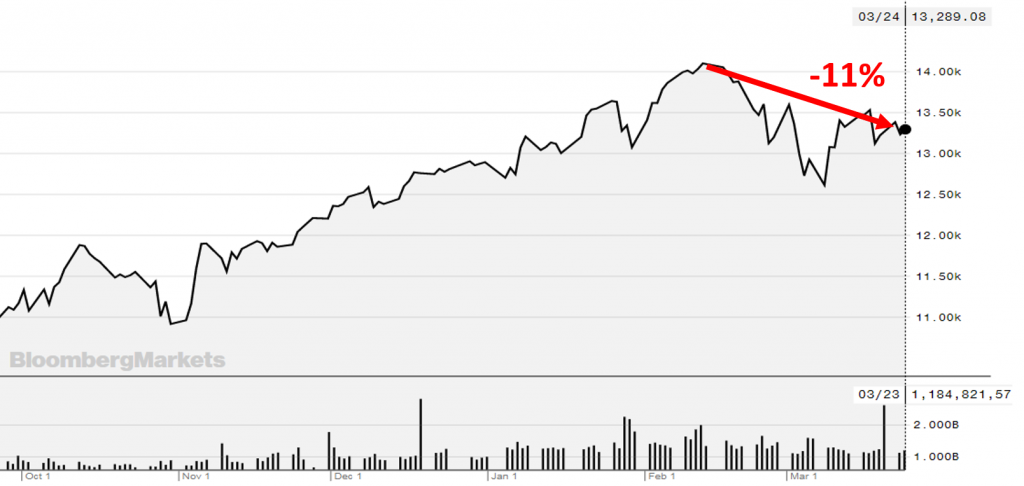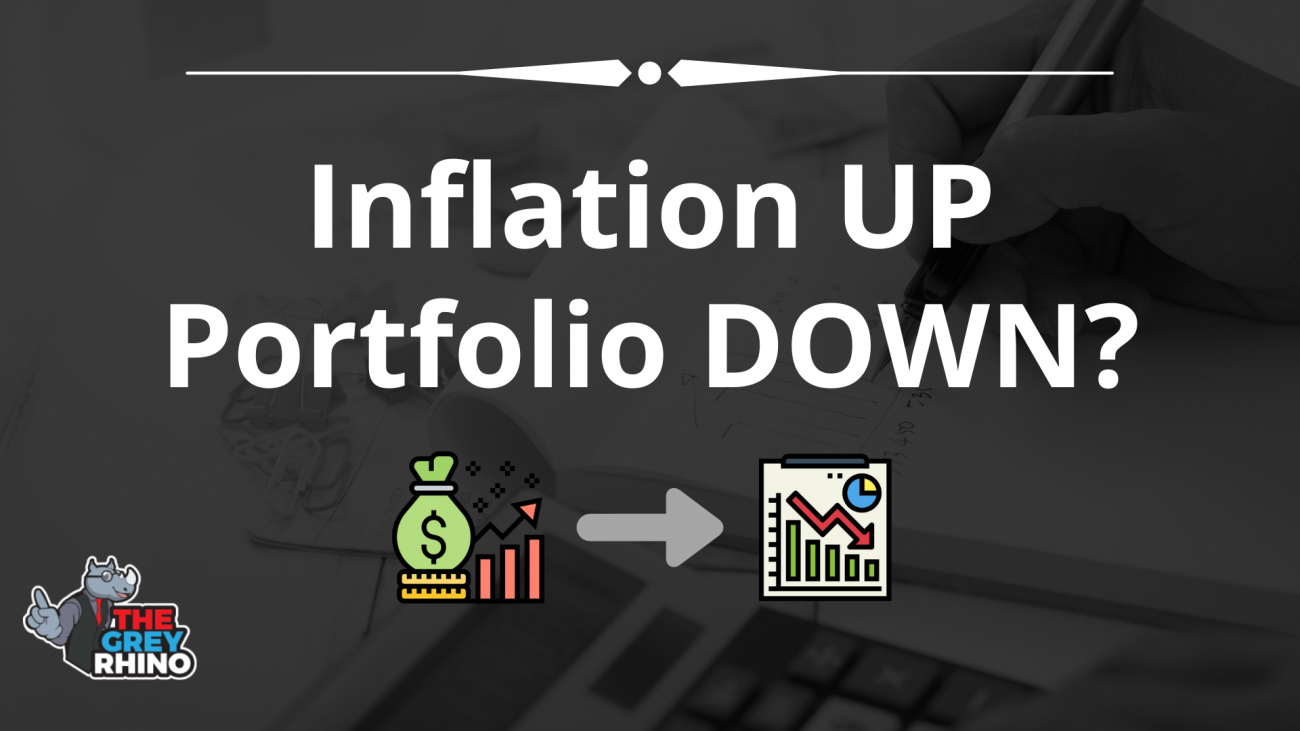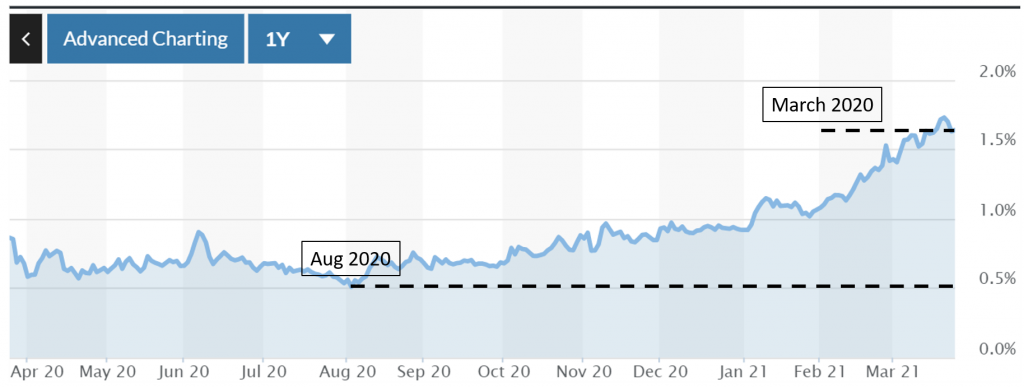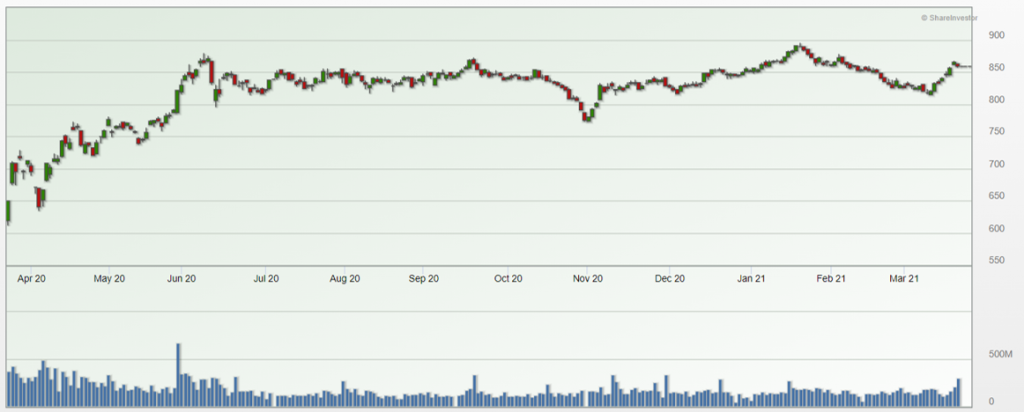How will inflation affect the stocks you choose and their value?
*If you want to learn more about the other factors; economic growth, liquidity, and interest rate, feel free to click on their attached links.
So, let us dive right in!
Inflation growth in 2021
Inflation is going to be the most important and impactful factor in 2021.
Inflation is going to pick up later in the year, matching the economy’s own growth and resulting in the rising interest rates. This prediction is already happening in countries where their interest rate is increasing faster than their inflation.
The lowest point of the 10 years treasury occurred in August 2020, and the coupon rate[1] was around 0.5%. However, coming into 2021, it raised to 0.9% and is now at 1.6%. This figure might seem low; however, we must understand that relative to the starting range of 0.5%-0.9% the increase was quite substantial. In this case, the bond market acts as a great predictor of inflation and the direction of the economy. And this observation is evidence that inflation has started to increase rapidly and will continue to do so as the economy picks up.
Armed with this evidence, we must then ask ourselves how this will affect our asset prices. Generally, it will affect our stocks differently depending on the type of stocks we hold.
1. Structural growth company[2] stocks
They will be affected the most as they tend to be most impacted by rising interest rates. NASDAQ, an index which holds more than 3,000 stocks of the world’s leading technology and biotech companies, is a good representation of structural growth companies.

NASDAQ has declined by 11% since the middle of February until now. Although the decrease does not seem that substantial, we must remember that this is merely at an index level. If we were to dig deeper into some of the smaller companies on the index, we realise that the decline is much larger. For example, Nio, an electric car company listed on NASDAQ, has seen a 50% decrease in stock price.
However, if we were to dive even deeper, speculative companies that are not making profit or revenue will take the biggest hit even though they are part of the “growth” type companies.
2. Defensive companies
These companies tend to have relatively stable earnings and profit during both an economic downturn and upturn.
Singapore REITS is an example of a collection of such companies. The index, with a substantial collection of stocks from these types of companies, has only declined by 8% since January until now.
3. Cyclical companies
Cyclical companies tend to sell discretionary items and services that are in demand when the economy is on the upturn. However, the demand for these same goods decrease when the economy faces a downturn. Hence, these companies tend to follow the overall trend of the economy. For example, DBS, a Singaporean bank that is also a cyclical company has seen a 8% increase in stock price since the beginning of January, mirroring the overall trend of the economy improving.
What happens to inflation next?
The interest rates have already started to pick up substantially. As such, a higher growth and higher inflation is likely to occur as we proceed further into the year even though we have yet to see much change.
This is expected because demand is likely to pickup once the there is a successful vaccination roll out and people start using their USD$1.9 trillion fiscal stimulus in the US. However, the supply is unlikely to increase as flexibly as we have been in a lockdown, hence supply might take a little more time to catch up.
The imbalance between demand and supply will then cause the inflation to increase. Since there is an increasing demand, and somewhat stagnating supply, sellers will be able to push up the prices of the goods and services as people are willing to pay more for them. I predict that the inflation will increase to the high side of 2% (expected by US Federal Reserve) or perhaps even higher than that at 3% or more. This is likely to happen in the later part of the year and interest rate will be increasing before that.
How will it affect stocks?
Higher inflation will come after higher interest rates. However, we still must take economic growth into account. The economic growth will drive up corporate profit. If economic growth is faster than the interest rate increase, it will be positive for the stock market. However, if the interest rate rises faster than the economic growth, then it will be temporarily bad for the stock market.
Direction of stocks this year
Inflation will pick up and will probably go back down to the 10 year long plateau. This is supported by 2 factors: Demand and Productivity.
1. Demand
Wealthy nations are all having low fertility rates. As such, their population is rapidly declining and this leads to a simultaneous decline in consumption. It is then hard to sustain growth hence, there is lowered inflation as suppliers keep decreasing prices to match the decreasing demand while trying to increase profit.
2. Productivity
Technological advancement has lowered the cost of production in the past 10 years. This then causes a deflationary effect on the inflation rate. There will eventually be a structural growth trend with a generally low inflation rate.
The investment opportunity this year
Many stocks will go through correction and volatility this year, especially in the growth sand defensive sector. It will be best if you were to take advantage of this possible opportunity as the rising interest rates and inflation will allow us to buy the stocks of such companies at an attractive price.
Additionally, if you are not keeping enough cash, I encourage you to make use of the temporary rally, like the one that occurred on 9th March. More cash will prepare you for when there is volatility, especially violent one, whereby you can then use the cash to buy stocks from structural growth and defensive companies.
This trend is bound to last the whole of 2021 and maybe early into next year, after which this will be less of an issue. While this opportunity is rare, I hope that you can utilise the time now to help you build your wealth.
[1] Coupon rate: It is the yield paid by the bond issuer annually relative to the par value (initial value the issuer promised to pay).
[2] Structural growth companies: They are innovative disruptors in their respective industries and grow much faster than their peers.
If you have any questions about your personal investment portfolio or want to learn how to better reap the opportunity you are now having, feel free to reach me via heb@thegreyrhino.sg or 8221 1200.
Remember to leave comments and share this site with your friends. Do subscribe to my newsletter for updates and share this site with your friends too. I would love to connect with you.




Thank you Kek Wee for another informative sharing.
For the past 2 weeks, we have seen Covid 19 cases rising across countries, especially so in India, what are your views on :
(1) Do you forsee another lock-down?
(2) How will the big economies like US and Europe be affected?
(3) Which sectors are still bright for investing? I guess, hospitality, travel, reits will be greatly affected if the Covid situation gets worst.
Thank you for your generous sharings.
Dear Grace,
1) I can’t tell you whether this spike will turn into another lock down. It is a “police and thief thing”.
The “police” (humans) invest new ways (vaccine) to capture the “thieves” and the “thieves” invest in new ways to escape (virus variants).
The cases seem to be coming down in the developed countries, hence the vaccine could be working. However, it is still unknown whether it can work against the variants.
2) However, I think the central banks will resort to printing money again should the Covid situation get worse. Hence, I think a deep, prolonged stock market crisis, should Covid worsen, is unlikely.
Rather, like I shared, the more worrisome scenario is structural inflation. To be safe, I think an investor should have some inflation hedge in place. Gold and resource equities are some of these hedges.
3) Cyclical companies, e.g. banks and semiconductors, have had a good run, but there is probably some more room to grow. There may be bouts of volatility for Structural Growth companies this year when we get spikes in Treasury yields. I think it would be an opportunity to buy these companies when the prices drop as I think the technological revolution is probably less than midway to maturity. I think we should avoid those concept companies and low quality companies with little competitive advantages.
Thank you for your constant support, and I hope I answered your questions. Feel free to ask me any more questions you might have!